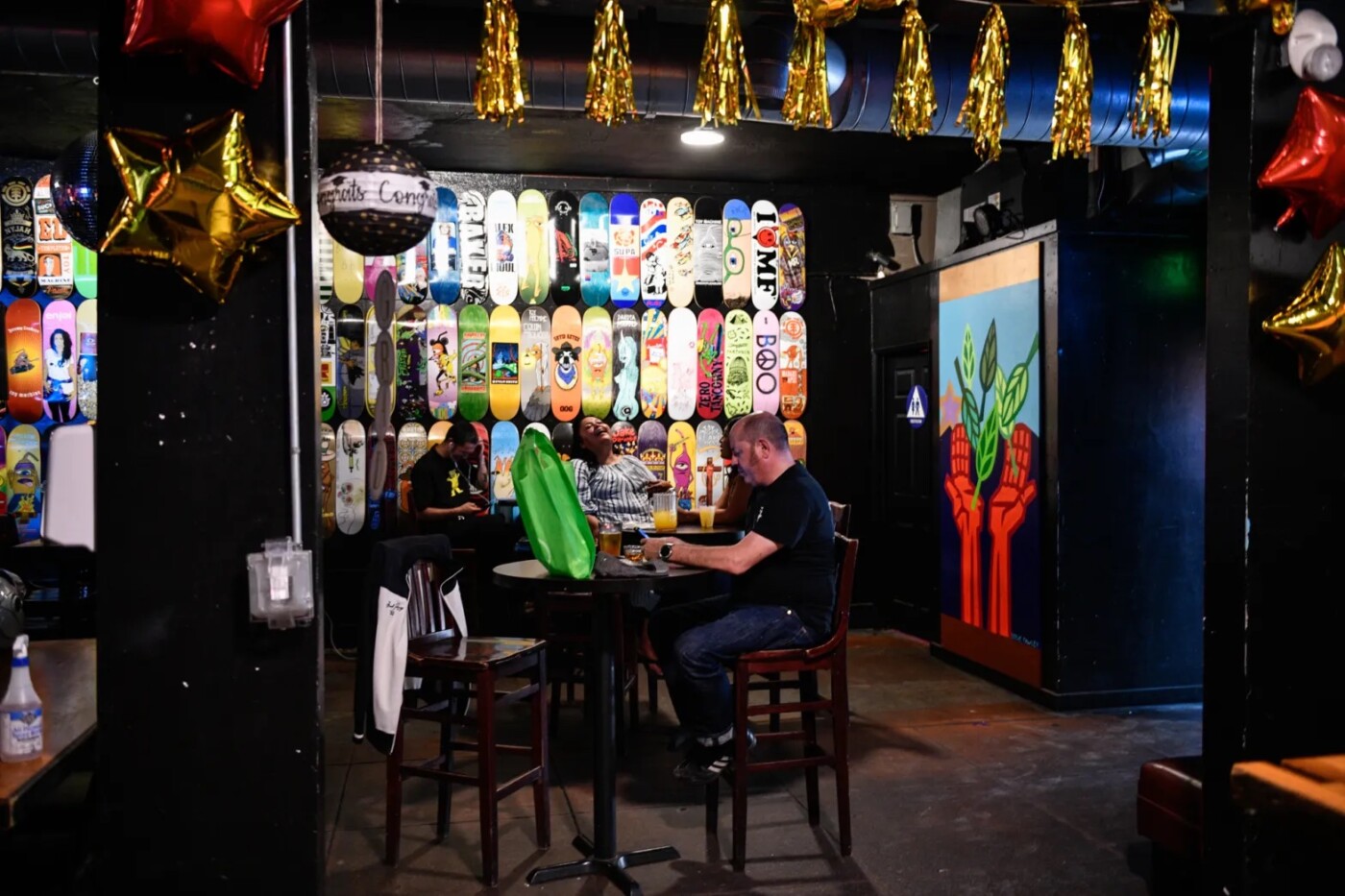It may not be long until Californians can order a beer at a bar to go, walk it straight out the door and drink it outside.
Democratic State Sen. Scott Wiener wants to allow California cities and counties to designate “entertainment zones” where bars and restaurants could serve alcoholic drinks that people can consume on public streets and sidewalks. If Senate Bill 969 is passed, Californians age 21 and over can raise a toast in the glorious outdoors by Jan. 1, 2025.
When Wiener announced the measure Friday, he said it would help revitalize downtowns where foot traffic has plummeted since the pandemic, including his home of San Francisco. Cities will be able to tailor these zones to their needs, allowing bars and restaurants to sell to-go drinks similar to what vendors do at festivals.
- Wiener, in a statement: “Getting people back out in the streets is key to the economic recovery of cities across California. By creating Entertainment Zones, we’re giving people a reason to go back to areas where recovery has been slow while creating a vital new revenue stream for bars and restaurants.”
Wiener also cited research from the University of Toronto that tracked cell phone activity to determine how well cities have rebounded since the pandemic. In October it found that San Jose had recovered 96% of visitors to its downtown area, surpassing Los Angeles at 83%, San Francisco at 67% and Sacramento at 66%.
Hoping to continue that momentum, the cities of San Jose and San Francisco are included as sponsors of the bill, with San Jose Mayor Matt Mahan saying it will “make it easier for local businesses to host block parties, wine walks” and other events “to help drive the vibrant future of our downtown.”
The proposal is likely to get pushback from neighborhood groups worried about public nuisances and noise, as well as organizations concerned with alcohol-related health impacts and harm.
Last year, Wiener won a similar law limited to only San Francisco. Groups including the California Alcohol Policy Alliance and California Council on Alcohol Problems spoke out against the measure, known then as SB 76. An organization known as Alcohol Justice said the measure would make it easier for underaged people to “obtain alcohol within these entertainment zones” and “throw open the door to a litany of potential harms, liability entanglements, and unwanted and uncontrollable neighborhood disruptions.”
These organizations did not immediately respond to requests for comment.
The new bill has not been referred to a committee yet, but a spokesperson for Wiener’s office said the Senate committee on governmental organization will likely consider it, similar to how it reviewed the 2023 measure. That hearing is expected to take place in March, when the public will have a chance to comment.
